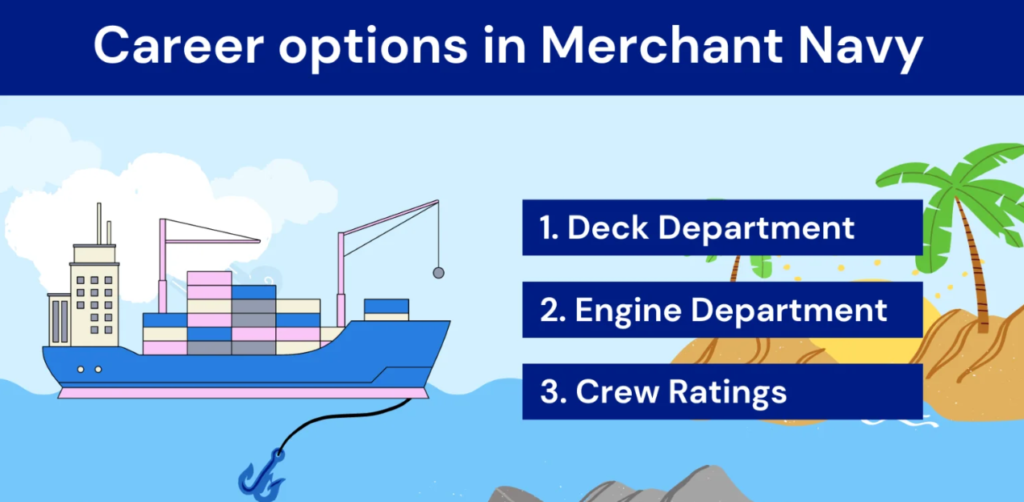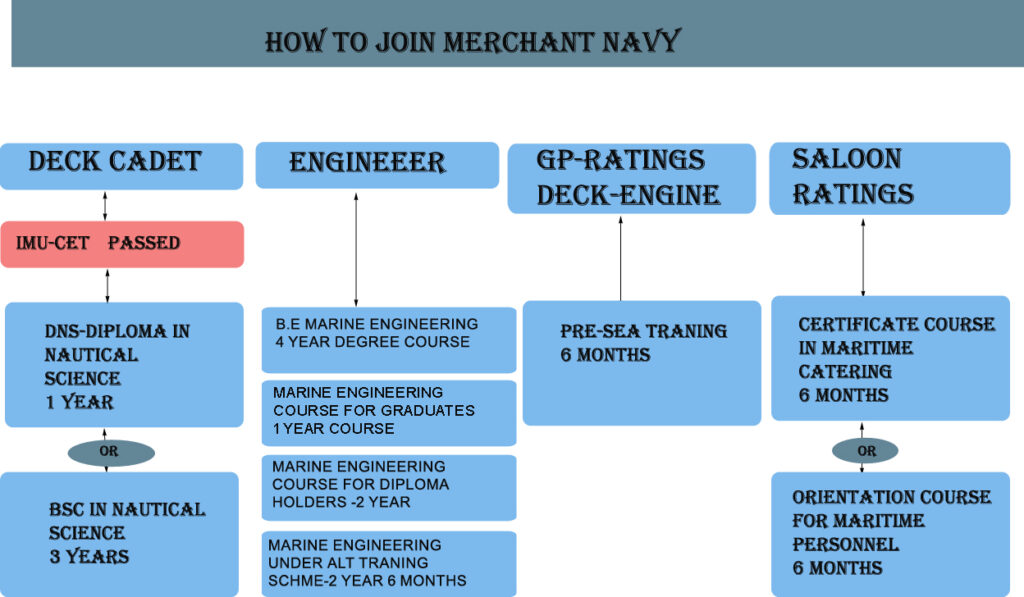
The merchant navy is one of the most lucrative and respected sectors in the maritime industry. It offers a wide variety of job opportunities, both onshore and offshore. At Skills Station, we understand the value of preparing young aspirants for rewarding careers. Our training programs focus on all major merchant navy jobs, including technical and non-technical roles. With a growing demand for skilled professionals, it becomes essential to know about the various types of merchant navy jobs available today.
Introduction to Merchant Navy Jobs
Merchant navy jobs refer to roles within commercial shipping fleets that transport cargo and passengers across the globe. These are civilian roles and should not be confused with the naval defense forces. Whether it’s transporting oil, containers, or passengers, the merchant navy keeps international trade flowing smoothly. For those seeking an adventurous career, navy jobs provide the perfect mix of travel, responsibility, and financial reward.
Deck Department Roles
The deck department is primarily responsible for the navigation and safety of the vessel. Here are some key merchant navy jobs in this department:
Deck Cadet: This is an entry-level job for those who want to become officers. Cadets receive training in navigation and seamanship while onboard.
Third Officer: Handles safety equipment, signaling, and communication.
Second Officer: Navigational expert responsible for voyage planning and maintaining charts.
Chief Officer: In charge of the cargo operations and second-in-command.
Captain (Master): Overall head of the ship, responsible for everything onboard.
These navy jobs are crucial to ensuring the ship’s voyage is completed safely and efficiently.
Engine Department Roles
The engine department deals with the mechanical and technical aspects of the ship. Common merchant navy jobs in this category include:
Engine Cadet: Entry-level training role for those pursuing a career in marine engineering.
Fourth Engineer: Assists senior engineers and handles machinery maintenance.
Third Engineer: Responsible for boilers, fuel systems, and other essential machinery.
Second Engineer: Oversees day-to-day engine operations.
Chief Engineer: Head of the engine room, responsible for all technical aspects.
These roles are ideal for candidates with a mechanical background who want to pursue merchant navy jobs.
Electro-Technical Department
This is a relatively new department and becoming increasingly important due to the rise of technology on ships.
Electro-Technical Officer (ETO): Handles electrical and electronic systems onboard. These merchant navy jobs are highly technical and crucial for modern vessels.
Catering and Hospitality Roles
Not all merchant navy jobs involve technical tasks. The hospitality crew ensures the well-being of everyone onboard:
Chief Cook: Prepares meals for the crew and officers.
Steward: Responsible for serving meals, cleaning, and housekeeping duties.
Though often overlooked, these navy jobs contribute significantly to crew morale and smooth operations during long voyages.
Specialized Merchant Navy Jobs
In addition to the main departments, there are specialized merchant navy jobs that support vessel operations:
Radio Officer: Handles ship communication systems.
Pumpman: Especially on tankers, responsible for cargo pumps.
Bosun: Senior-most deck rating in charge of the deck crew.

These merchant navy jobs require experience and specific skills and are often filled by personnel with several years of sea service.
Shore-Based Merchant Navy Jobs
While life at sea is exciting, many professionals eventually move to shore-based roles:
Marine Superintendent
Port Captain
Surveyor
Shipping Company Executive
These merchant navy jobs are ideal for those who want stability after years of sailing. The experience gained onboard makes them highly valuable assets in the shipping industry.
Training and Education for Merchant Navy Jobs
To pursue any of the above merchant navy jobs, candidates must complete approved training programs. These may include pre-sea training, STCW courses, and cadet programs. Institutions like Skills Station offer comprehensive training for a variety of navy jobs, focusing on both theoretical and practical knowledge.
Skills development is crucial. Training institutions equip candidates not only with technical expertise but also with the soft skills needed to thrive in an international and multicultural environment. A well-trained crew is the backbone of safe and successful maritime operations.
Career Growth in Merchant Navy Jobs
One of the biggest advantages of merchant navy jobs is the structured growth path. Entry-level candidates can climb the ranks with experience and further certification. It is not uncommon for a Deck Cadet to become a Captain or for an Engine Cadet to rise to the rank of Chief Engineer over time.
Moreover, navy jobs offer tax-free salaries in many jurisdictions, extended vacation periods, and opportunities to travel across the world. These perks make them attractive to young professionals looking for both financial security and adventure.
Conclusion
In total, there are dozens of merchant navy jobs spread across departments and ranks, each contributing to the successful operation of commercial ships. From navigating the high seas to managing complex machinery and ensuring comfort onboard, the merchant navy offers something for everyone. If you’re looking to build a maritime career, the best merchant navy academy in Dehradun, Skills Station, provides the perfect launchpad for all aspiring seafarers.
By choosing the right training and staying committed, you can secure a future in some of the most respected merchant navy jobs available today.
